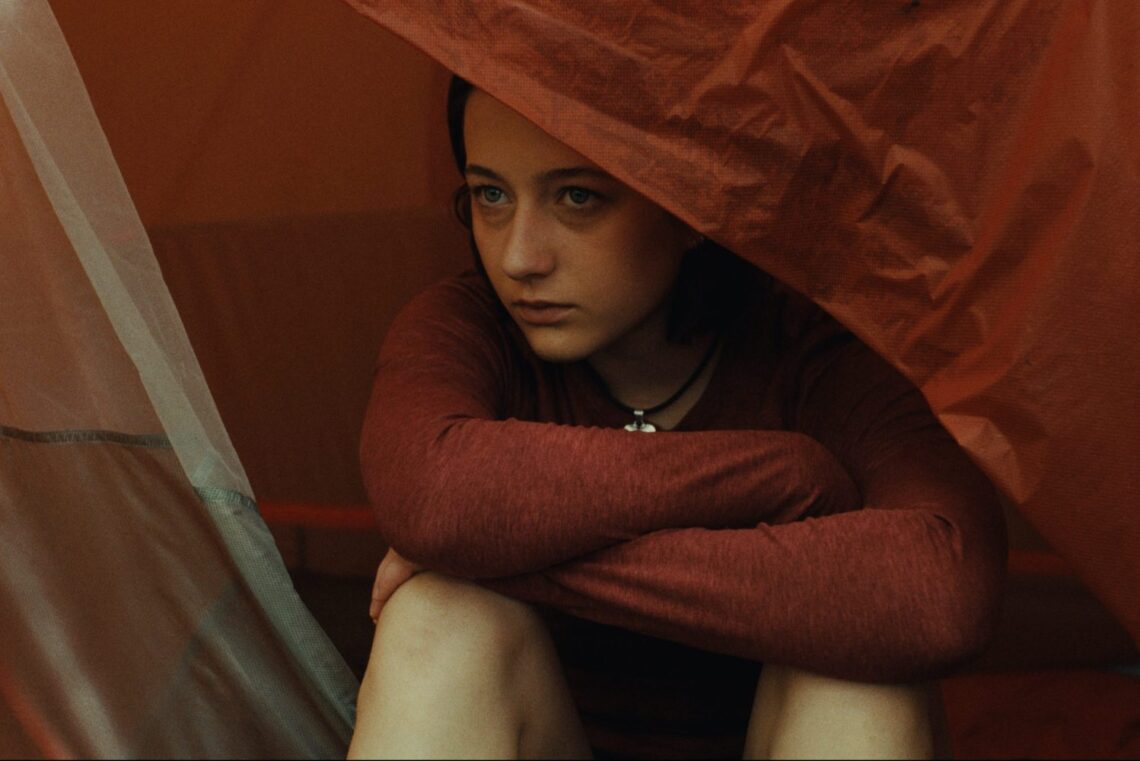A fresh take on ‘Good One’: A deep dive into the indie dramedy
Spoiler Alert: This article contains spoilers for “Good One,” currently in theaters.
A new voice in cinema
From the creative mind of first-time feature director India Donaldson, “Good One” emerges as a breezy dramedy that takes an unexpected turn. The film, which premiered at Sundance and was subsequently picked up by Metrograph Pictures, explores the complexities of familial trust, flawed parents, and the bounds of forgiveness.
The plot thickens
Lily Collias, in her second feature role, portrays 17-year-old Sam, who embarks on a camping trip with her father, Chris (James Le Gros), and his clumsy friend Matt (Danny McCarthy). The story takes a dark turn when, after Chris goes to bed, Matt suggests that Sam join him in his tent to keep him warm. This disturbing twist, an hour into the film, shatters the audience’s trust and sets the stage for a profound exploration of betrayal and forgiveness.
The power of subtlety
Donaldson’s approach to this pivotal moment is marked by subtlety and restraint. Rather than opting for a more extreme transgression, she allows the complexity of the characters to shine through. This choice adds layers to Matt’s character, making him more than just a one-dimensional villain. The audience is given the opportunity to get to know and trust him, only to feel the same disappointment that Sam experiences.
The challenges of indie filmmaking
In an interview, Donaldson shared the difficulties of making her debut film, particularly the challenge of self-doubt. “To make a film, you have to keep barreling forward and shut that voice out,” she said. The success of “Good One” hinged on casting the right people and capturing the subtle moments on the characters’ faces. The scene where Sam confronts her father, for instance, was initially much longer in the script but was pared down to its essential elements during filming.
Filming in the great outdoors
Filming in nature posed its own set of challenges. Donaldson and her team had to contend with unpredictable weather, wildlife, and a tight schedule. Despite these obstacles, they managed to adapt and incorporate the elements into the film, adding a damp, sad quality that became crucial to the tone.
The aftermath of betrayal
After the transgression, Matt’s character becomes smaller and more invisible, reflecting his shame. The greater betrayal, however, comes from Sam’s father, who is unwilling to confront Matt. This speaks to a broader idea that men often side with other men in such situations. The film captures the universal disappointment we all feel when we realize our parents are flawed human beings.
The final moments
The film’s final moments are open to interpretation. When Sam’s father hands her the car key, it can be seen as a peace offering, a way of giving her control. However, it is also a selfish act, as he is tired and doesn’t want to drive. This complexity adds depth to the characters and their relationships.
A nuanced ending
Sam locks the two men outside the car, letting them bask in their discomfort. There is no big confrontation, no blowout fight. This reflects the reality that it is often easier to push aside difficult issues rather than confront them head-on. The film leaves open the possibility that Sam and her father may have a more productive conversation in the future, but for now, they must navigate their strained relationship.
Watch the trailer
For those interested in experiencing the film firsthand, you can watch the trailer for Good One.
Final thoughts
“Good One” is a testament to the power of subtle storytelling and the complexities of human relationships. India Donaldson’s debut film is a compelling exploration of trust, betrayal, and the difficult path to forgiveness. For cinema enthusiasts, it is a must-watch that offers a fresh perspective on the indie dramedy genre.

 Italian
Italian







